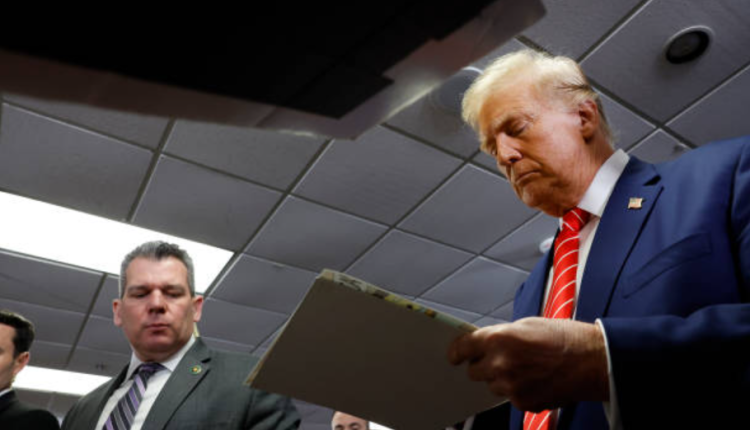Trump’s Defense Asserts Presidential Immunity in Rival Assassination Controversy
During a tense appeals court session, Trump’s lawyer claimed a sitting president could order a rival’s killing without prosecution unless impeached and convicted by Congress.
This bold stance emerged amidst the backdrop of special counsel Jack Smith’s election-interference case against the ex-president.
Trump’s legal team staunchly defends the theory of absolute immunity, contending that a president cannot be criminally prosecuted for actions carried out while in office.
However, the presentation of this argument faced rigorous interrogation by Judge Florence Pan, a member of the appeals-court panel in Washington, DC.
During the hearing, Judge Pan directed a series of probing hypothetical scenarios at Trump’s attorney, D. John Sauer, seeking clarity on the limitations of the alleged immunity. She raised questions about potential accountability if a president were involved in activities such as selling pardons or disclosing military secrets without prior impeachment and conviction.
Pan further delved into a provocative scenario, questioning whether a president could authorize the assassination of a political adversary, evading criminal repercussions if impeachment wasn’t pursued.
Presidential Immunity in Question

Despite Sauer’s reiterated claims that accusations against a president tied to their official duties necessitate preceding impeachment and subsequent conviction, Pan persistently pressed for a direct response.
The exchange highlighted the core of the argument: whether, under this interpretation, a president could escape criminal prosecution for grave actions without undergoing impeachment and conviction.
This legal debate sparks fundamental inquiries about presidential immunity and the extent of a sitting president’s accountability. As the case unfolds, it triggers broader discussions on the boundaries and balances of executive power within the legal framework of the United States.
The intensity of this courtroom confrontation underscores the significance of clarifying the legal boundaries and potential consequences surrounding a president’s actions while in office.
The outcome of this case may significantly impact the understanding of presidential immunity and the checks on executive authority within the American governance system.

